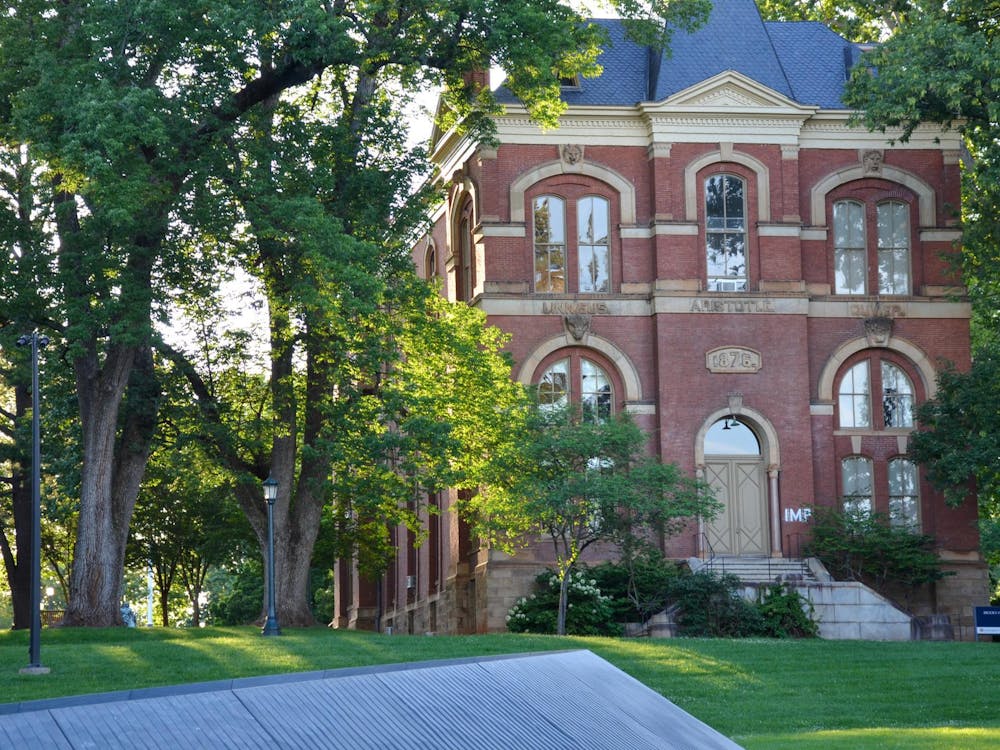Republican leaders in the Virginia General Assembly announced plans last week to bar illegal immigrants from enrolling in the Commonwealth's public universities.
State Sen. Jay O'Brien, R-Clifton, is sponsoring the legislation, which will prohibit public universities from enrolling undocumented students, even if they graduated from a Virginia public high school.
"The concern is that as difficult as it is for legal Virginia residents to gain admission to college, it is not fair to the rest of the population when illegal immigrants get in," said William J. Howell, R-Stafford, speaker of the House of Delegates.
Currently 15 to 16 Virginia universities and community colleges accept illegal immigrants, Howell said.
Dean of Admissions John Blackburn said the University, as a public institution, would be affected by the proposed measure.
"We do not admit undocumented aliens," Blackburn said. "It's the opinion that came to us from the attorney general," he said, referring to former Virginia Attorney General Jerry Kilgore's 2002 memorandum urging Virginia universities to reject undocumented applicants and report them to the authorities.
According to University spokesperson Jeff Hanna, there is a distinction between accepting a student and allowing the student to enroll.
"The University won't decline to process the application based on possible illegal status," Hanna said. "We will consider the application, and the decision about whether to accept [the student] is made without reference to immigration status."
Blackburn said the University asks prospective students whether they are U.S. citizens. They do not, however, require them to prove their citizenship.
"We don't say 'show us your birth certificate,'" Blackburn said.
If a student who is not a legal U.S. citizen is accepted, he or she must provide documentation in order to enroll, Hanna said.
According to Blackburn, proper documentation for visas and residency is handled by the International Studies Office and the Virginia Status Office.
Blackburn said it is rare for an accepted student to be denied admission due to lack of documentation.
"I can't think of any this year," Blackburn said. "When you talk percentages -- it's almost nothing."
Elias Bermudez, founder and director of Inmigrantes Sin Fronteras, said the legislation would deny bright students the opportunity to attend the Commonwealth's public universities.
"Legislation that tries to create an atmosphere of punishment ... goes against anything that this country stands for," Bermudez said. "It is a sentiment of rejection bordering on racism because these people are of different race."
He added that students that immigrated to the United States have succeeded in the public school system.
In 1982 U.S. Supreme Court decided in Plyer v. Doe that elementary and secondary schools cannot consider immigration status when a student seeks to enroll.
Howell said the situation is different for admission to colleges.
"The thing about colleges is that they are only allowed to take so many students in an entering class," Howell said. "Take a class at the University of Virginia... [illegal immigrants] would be taking the seats of legal Virginia residents... That's not the case in K through 12."
In 2004, two illegal immigrants desiring admittance to Virginia public universities sued the University, the College of William and Mary, George Mason University, James Madison University, Northern Virginia Community College, Virginia Commonwealth University and Virginia Tech. Judge T.S. Ellis III of the U.S. District Court in Alexandria, Va. ruled in favor of the universities' right to deny admission to illegal immigrants.
Facing possible legal challenges in the future, the proposed legislation might call upon the 2004 decision as precedent, Howell said.






